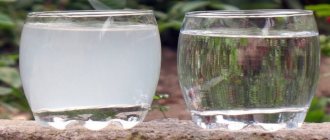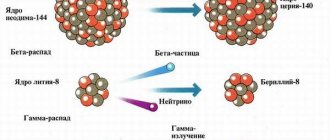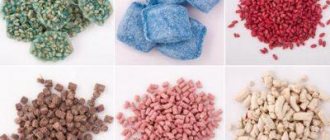Water is one of the main substances that ensure the vital functions of the human body. A person can live without food for almost two months, but without water, death will occur within a few days.
Source: depositphotos.com
But at the same time, water is fraught with danger for humans. It may be infected with pathogenic microbes and contain toxic substances. Drinking poor quality water can cause a number of diseases. But even well-purified water, if abused, can cause serious disorders.
Water intoxication
For the normal functioning of the body, it is necessary to replenish fluid reserves daily, but only some experts note that water intoxication negatively affects health. Excess water disrupts the water-salt balance, strains the kidneys and reduces the concentration of electrolytes in the blood. Therefore, it is important to know the symptoms of such poisoning.
There are two types of water poisoning:
- Indirect. Harmful bacteria enter the body along with water.
- Direct. Excess fluid worsens health.
You need to understand that the kidneys can process no more than 1 liter per hour.
Causes of intoxication
A significant ability of a liquid is that it dissolves various compounds. This is necessary for the normal functioning of internal organs, but in some cases it leads to overhydration.
Main reasons:
- Chlorination of water. This chemical purifies drinking water, but there is a health risk. With an excessive amount of chlorine, the functioning of the gastrointestinal tract and cardiovascular system is disrupted, leading to the formation of cancerous tumors.
- Organic pollution. Intoxication with dirty water is the most common. Every body of water contains many microbes that can lead to various intestinal disorders.
- Chemical contamination. With the rapid development of industrial and oil production enterprises, water contains harmful chemical elements that lead to digestive disorders.
- Overhydration . Daily consumption of large amounts of drinking water disrupts the water-salt balance. As a result, sodium is removed from the body.
It is important to note that using untreated water in everyday life increases the risk of intoxication.
Consequences of overhydration
Every person should know what excess fluid content can lead to:
- Pulmonary edema.
- Hypokalemia.
- Brain swelling.
- Hyponatremia.
- Tissue swelling.
Such conditions can lead to the death of the victim.
In addition, sodium levels are reduced. This is explained by the fact that the kidneys do not have time to process the incoming fluid, as a result of which the chemical composition in the blood decreases.
To restore electrolyte balance, water begins to enter the cells so that the concentration of electrolytes is restored. As a result, the tissue begins to swell. This leads to negative consequences. Particularly dangerous is the process when excess water begins to enter the brain . If it begins to swell, the consequences may be irreversible.
Coma or death may occur if a large volume of water is drunk in a short period. Therefore, when thirst occurs, it is recommended to drink water in small sips at intervals of several minutes. In this way, you can avoid harmful consequences from excess fluid or the entry of harmful microorganisms into the body.
When bacteria enter the body, the second stage begins, when the microbes begin to negatively affect internal processes. The liver suffers most, since its main function is cleansing. Therefore, it is important to urgently take measures to help the victim.
The functioning of the nervous system may also be disrupted, which leads to the adrenal glands not being able to cope with their main function. As a result, severe weakness appears and appetite decreases.
How much water should you drink every day
There is a generally accepted opinion that each person needs 2.5 liters of fluid daily. This opinion is shared by many experts in the field of medicine and nutrition. But this is a big misconception.
To determine the optimal volume, you need to listen to your body. If the water-salt balance is disturbed, a person experiences thirst, but if the body has enough fluid for normal functioning, then there is no need to drink forcibly.
- People leading an active lifestyle. As a rule, after physical activity they experience a strong desire to quench their thirst.
- Women who struggle with excess weight with the help of fast and strict diets.
- Drug addicts, since the chemical elements contained in drugs lead to dehydration of the body.
- Nightlife lovers. They feel thirsty because they are on the move for a long time.
Therefore, it is necessary to drink water only when thirst occurs. This will avoid possible consequences.
Symptoms of intoxication
The symptoms are similar to other poisonings. Therefore, it is necessary to carefully familiarize yourself with the symptoms. With a mild form, a person feels weak and wants to sleep. The stage of intoxication can be determined by the chemical composition of the liquid. But first of all, you need to pay attention to the main signs.
- Problems with the gastrointestinal tract: pain in the abdomen, stool disturbances, nausea, vomiting, gases.
- Fever.
- Due to the heavy load on the kidneys, the limbs swell.
- Frequent urination.
- Heart rhythm disturbance.
- Fatigue, drowsiness and loss of strength.
- High blood pressure.
- Blood circulation is disrupted.
- Migraine.
- Loss of consciousness.
- Irritability.
- Apathy.
- Decreased body temperature.
- Cramps and muscle spasms.
- Decreased appetite.
- Redness on the skin.
- Confused consciousness.
When such signs appear, help is required, otherwise it can lead to irreversible consequences, even death.
It should be noted that water poisoning can occur not only when drinking it internally. The most dangerous is sea water, as it contains harmful microbes. Therefore, while relaxing on the beach, it is important to pay attention to the following symptoms:
- stomach ache;
- nausea;
- vomit;
- migraine;
- dizziness;
- loss of appetite.
Therefore, you urgently need to take the victim to a cool place and call an ambulance.
Signs of poisoning may also appear after visiting a swimming pool to which various chemicals are added. In this case, water intoxication may occur , which has certain symptoms.
:
- cough;
- tearfulness;
- irritation in the throat;
- fainting;
- decreased heart rate;
- shortness of breath.
To avoid such consequences, when visiting the pool it is recommended to wear a swimsuit, a cap, a nose clip, and, if necessary, gloves.
What diseases does it indicate?
Symptoms of water poisoning vary depending on the cause. Pathophysiology identifies the following types of pathogens and their characteristic differences.
Cholera
A distinctive feature is the short incubation period. The first symptom is diarrhea, which begins suddenly. After a while, nausea sets in.
With diarrhea, stool quickly changes color and structure and becomes similar to rice water. The average number of bowel movements per day reaches 20 times. As a result, the patient becomes dehydrated, which can be diagnosed by the following signs:
- hoarse voice;
- decreased amount of urine output;
- dry mouth;
- decreased skin elasticity;
- strong thirst;
- low blood pressure;
- tachycardia.
Coli infection
This includes a whole group of infectious diseases. The main pathogen is E. coli of different strains. Manifestation of infection:
- infrequent bouts of vomiting;
- profuse watery diarrhea;
- cramping abdominal pain;
- nausea;
- increase in body temperature to 38 degrees.
Typhoid fever
The disease has a long incubation period, which can be up to 14 days. When the first symptom appears, it is not associated with drinking poor-quality water. The following disturbances in the functioning of the body should raise suspicion of infection by a pathogen:
- flatulence;
- pale skin;
- feverish condition;
- roseola rash;
- severe headaches;
- diarrhea;
- decreased appetite;
- inhibited consciousness.
Treatment of intoxication
No self-medication, as this can lead to more serious problems. In the hospital, doctors normalize the water balance in the body, remove toxins, and also prescribe a special diet for the patient.
Prevention
To avoid possible problems, it is necessary to take a responsible approach to the choice of drinking water. It is recommended to install a filter in the house or boil the liquid before consumption. Do not take water inside from open reservoirs.
Experts do not advise deliberately increasing the consumption of large amounts of water. For example, participate in relevant competitions or adhere to a water diet.
After physical activity, it is not recommended to quickly restore fluid loss. After a few minutes, the brain will receive a signal that it is necessary to replenish the water balance, and the athlete will feel thirsty. In this case, you need to take a few small sips.
To avoid overhydration, you should listen to your body and drink water only when you want to. You also need to monitor the health of your liver and kidneys. Another important point is that if there is a deficiency of fluid in the body, it must be replenished gradually.
Anyone can be poisoned by water, but if you consume only high-quality water, and in moderation, it will be beneficial to your health. It is also not recommended to swim in prohibited areas.
Video
There are many different myths about water. This video dispels some of them.
Overhydration
(English hyperhydration; hyper- + hydration; syn.
hyperhydria
,
water poisoning
) - excess water content in the body or its individual parts. It is a form of water-salt metabolism disorder.
Clinically, patients develop swelling on the face, legs, ascites, pulmonary and cerebral edema develop.
Water in the human body is contained both in the cell and in the extracellular sector (intravascular, interstitial and transcellular part), which accounts for 30% of its total amount.
In renal failure, overhydration is associated primarily with a violation of the composition and volume of the extracellular fluid sector. In turn, this affects the intracellular sector, changing tissue metabolism towards catabolic processes with the breakdown of proteins, fats and carbohydrates. The biologically active substances released in this case, which were previously in a bound state inside the cell, enter the extracellular sector, causing serious humoral changes.
If a patient drinks more than three liters of water within an hour, a sharp development of uremic intoxication occurs; patients often die in such situations from hypokalemia, pulmonary edema and cerebral edema.
Overhydration, along with the pathogenetic treatment of the disease that caused it, requires appropriate dehydration therapy.
Water poisoning is accompanied by symptoms such as: a drop in body temperature, salivation begins, nausea, vomiting, loss of coordination of movements, convulsions, muscle weakness, and headache. (Can also be noticed by symptoms similar to ordinary poisoning.) [1]
Consequences and prevention
The disease provokes complications in the body. Water intoxication negatively affects the stomach and intestines, and the liver and kidneys suffer. Without medical attention, a person can die from dehydration. An overdose of water provokes swelling of the tissues of the brain and lungs. Excessive stress on the kidneys causes a serious disease - renal failure.
It is better to follow preventive measures - this will help maintain health, because... intoxication requires long-term treatment:
- Refrain from drinking water from a questionable source;
- Purchase bottled water from a trusted seller;
- Cook food using purified water;
- Maintain moderate fluid intake.
Types of hyperhydration [edit | edit code ]
There are the following types of overhydration:
- Extracellular hyperhydration (h. extracellularis) - the entire extracellular space or only the interstitial tissue is hyperhydrated. This type of overhydration is usually associated with a delay in electrolytes in the human body.
- Cellular hyperhydration (h. cellularis) or intracellular edema - characterized by the accumulation of water in the cells. This type of hyperhydration develops when excessive amounts of water or hypotonic solutions are introduced into the body.
- General hyperhydration (h. communis) or “water poisoning” or “water intoxication” - the entire body is exposed to hyperhydration. As a rule, this is hypoosmotic hyperhydration. This type of hyperhydration is observed with an increased intake of water into the body in combination with its insufficient excretion.
- Hyperosmotic or hyperosmolar hyperhydration (h. hyperosmotica) - characterized by increased osmotic pressure of liquids. This type of hyperhydration, for example, is observed when forced to drink sea water.
- Hypoosmotic or hypoosmolar hyperhydration (h. hypoosmotica) - characterized by reduced osmotic pressure of liquids. This type of hyperhydration is observed when the intake of water into the body prevails over its release.
- Normoosmotic (h. normoosmotica) or isotonic hyperhydration (h. isotonica) - characterized by normal osmotic pressure of liquids. This type of hyperhydration is observed with massive isotonic infusions and some types of edema.
Man cannot live without water. It is possible to live up to a month or more without food. Our body is 50% liquid. It contains beneficial properties that are required by humans. But it’s easy to get poisoned with low-quality liquid. Water intoxication is a dangerous condition, as it can cause serious illness. It is difficult to diagnose poisoning - the symptoms coincide with other pathologies. Not only contaminated water is dangerous - purified and perfectly filtered water is also fraught with danger.
Is it possible to get poisoned by water?
Every day a person consumes water in different forms. It surrounds us everywhere and everywhere. We have come to take it for granted, but it poses a threat. The composition may contain toxic substances and pathogenic microbes. Poor quality water provokes the development of serious diseases.
If the drinking liquid is not passed through a filter and not fully processed, dangerous bacteria enter the digestive system. This is fertile ground for the reproduction and release of toxins into the environment, which cause damage to the mucous membrane and gastroenteric syndrome. Dangerous substances tend to be absorbed into the blood and spread to internal organs, causing general intoxication of the body.
You can get poisoned even by simply drinking a lot of water.
Causes of poisoning
In the International Classification of Diseases (ICD-10) reference book, water poisoning has code Z58.2. The pathology is listed under the title “Exposure to Water Pollution.” The cause and symptoms of intoxication, treatment methods are described here.
Drinking water is consumed, for example, from the tap. Water comes from rivers, springs, wells and lakes. City dwellers drink from the cooler; it is possible to get poisoned from bottled water. Poisoning from distilled water is unlikely. Danger arises only if there are toxic substances in the liquid.
Intoxication often occurs for the following reasons:
- Impact of chlorine on the body. The chemical element is used to purify tap water and pool water to eliminate various infections. The substance is extremely toxic. A child can become poisoned when he drinks too much water after swimming in chlorinated water. It is not recommended to drink raw tap water. It is advisable to consume it boiled, previously passed through a filter.
Prevention
Preventing water poisoning is much easier than treating its consequences. To do this, you must follow the rules:
- never drink water from an unknown source;
- buy bottled water only from well-known manufacturers in official retail outlets;
- use filters for tap water;
- control fluid intake, especially in cases where thirst is increased, for example during intense exercise or in the hot season.
Video from YouTube on the topic of the article:
Signs of poisoning
Water intoxication manifests itself in different ways. Depends on the cause that provoked the pathology. Signs appear with varying intensity.
Tap water
Most people prefer to drink water not from bottles or filters, but from the tap. Arguments for this behavior: water utilities consist of high-quality filters. But it is not recommended to do this. Water moves from the river through pipes not 1-2 meters, but a much longer distance. It is unrealistic to install cleaning devices on every meter. In some area, pathogenic microorganisms lie in wait and easily enter the body.
In tissues and blood, pathogens provoke dangerous poisoning, which is expressed by symptoms:
- Severe vomiting is present against the background of an attack of nausea;
- Disorder of the intestinal mucosa - stool of a liquid consistency, up to 15 bowel movements per day;
- Body temperature rises to 39-40 degrees;
- There is muscle weakness with severe dizziness.
Symptoms appear at different intervals in time and intensity. The physical condition of the victim and the amount of toxin are affected.
Using a special filter or simply boiling will help to avoid poisoning - 15 minutes is enough.
Sea water
Every summer people strive to go to the sea on vacation. They are treated in sanatoriums on the Black Sea and in the south of other regions. Swimming in the sea is a favorite pastime for children and adults. Doctor Komarovsky E.O. maintains her own blog on the Internet, where she describes in detail the reasons that provoke food poisoning from sea water, and gives advice on how a child and parents should behave at sea.
If you know the causes of intoxication from sea water, you will be able to avoid unwanted consequences. What makes the sea dangerous:
- Pathogenic microorganisms multiply much faster, especially in warm water;
- Many water areas are polluted by household waste and industrial debris;
- The lack of public toilets on the coast forces vacationers to relieve their physiological needs at sea.
Salt has a detrimental effect on toxins, but it is not always possible to destroy a lot of pathogens.
Symptoms of sea water poisoning:
- There is a feeling of heaviness in the stomach, accompanied by nausea;
- Intense diarrhea;
- A disorder of the gastric cavity is manifested by frequent bouts of vomiting;
- Severe headaches;
- General muscle weakness.
To avoid poisoning at sea and ruin your vacation, it is recommended to take a number of preventive measures. Toxic substances and pathogens are usually concentrated near the shore. They enter the body through drops of water in the mouth and nose. Wearing a mask when swimming or diving will help prevent illness. After the sea you always need to take a bath.
Similar to heat exhaustion.
The symptoms of water intoxication mentioned above are similar to those of heat stroke. Some experts also argue that water intoxication is, in some way, a type of heat illness. Given the fact that the symptoms of water intoxication overlap with heat exhaustion, this makes it difficult to determine what exactly is affecting the patient. Water poisoning can also occur at high temperatures.
Heat exhaustion, on the other hand, can also result from depletion of sodium from the body and cause symptoms similar to water intoxication. Like water intoxication, heat exhaustion due to low sodium levels can also occur in extreme temperatures.
differentiation
The similarity to their symptoms makes it difficult to adequately diagnose without consulting a qualified physician. A battery of laboratory tests is necessary to determine and properly diagnose whether a patient is suffering from each other, but taking a brief history of the events leading up to that point can help determine whether it is intoxication or exhaustion.
If a patient meets one or more of the risk factors identified in this article, then it is highly likely that they have experienced intoxication. There are still some symptoms present in heat exhaustion that do not manifest with water intoxication. These include fainting, pale skin, profuse sweating and rapid heartbeat.
First aid
To help a person with signs of overhydration, you need:
- Stop giving any medications;
- Call an ambulance;
- Until doctors arrive, ensure the victim rest;
- Do not leave the patient alone;
- If the victim gets worse, take him to the hospital yourself.
After poisoning with bad water:
- It is recommended to rinse the gastric mucosa. You need to prepare 3-4 liters of a weak solution of potassium permanganate. Drink 0.5-1 liter per dose, this should cause vomiting. Repeat the manipulations until clear discharge appears.
- After the procedure, take tablets containing sorbents - Enterosgel, Polysorb or activated carbon. The drugs bind toxic substances and promote rapid elimination from the body.
- To prevent dehydration, take Regidron solution. Drink in small sips and often.
Further treatment involves liberating the body from the toxin and restoring the microflora of the digestive organs.
Mild poisoning is treated on an outpatient basis - the patient is at home, but under constant medical supervision. Let's name the cases when immediate hospitalization in a hospital is required:
- Intoxication in pregnant women;
- Infant or preschooler;
- Physiological processes in older people are slow, so hospital treatment is recommended;
- Signs of digestive disorders - diarrhea and vomiting continue throughout the second day;
- The skin quickly becomes white;
- Blood pressure drops to an extreme minimum;
- Disorientation in space.









